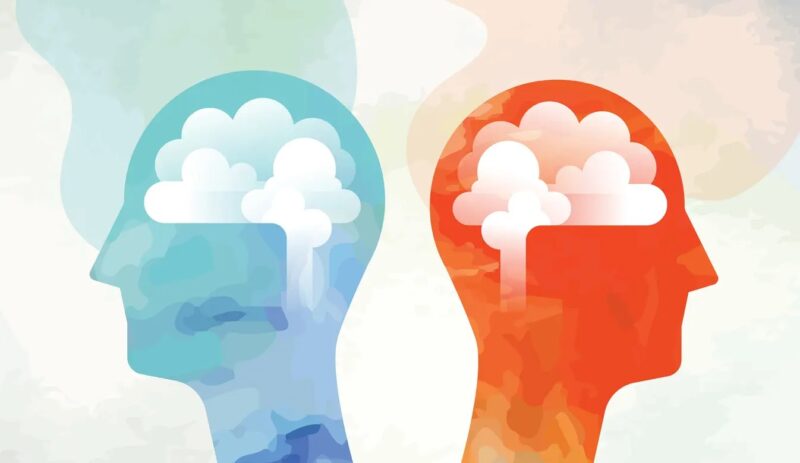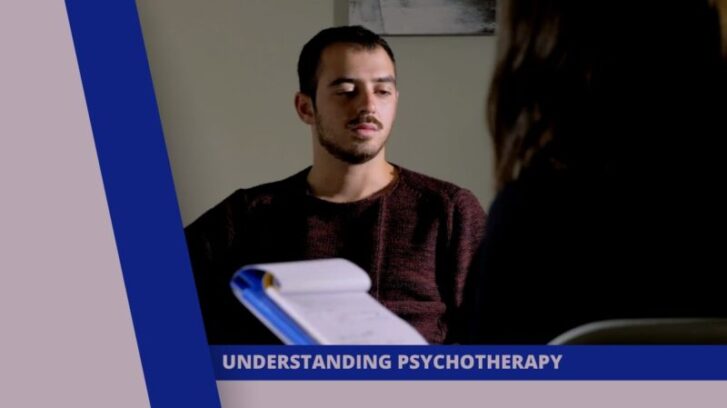Psychotherapy, often referred to as ‘talk therapy’, is a powerful tool that can help us navigate the complex landscape of our minds. It’s a journey of exploration, where we delve into our thoughts and emotions under the guidance of a trained mental health professional. The ultimate goal? To alleviate distressing symptoms, enabling us to function more effectively and enrich our lives with greater well-being and healing.
It is not just a remedy for those grappling with mental health conditions. It’s a resource that’s available to all of us. Whether we’re wrestling with stress, anxiety, depression, or navigating significant life changes or traumatic events, psychotherapy can provide invaluable support. It helps us understand and work through challenging relationships, enhance our social skills, and equip us with more effective coping strategies for life’s hurdles.
The History and Evolution of Psychotherapy
Psychotherapy has a rich and varied history, dating back to the ancient Greeks. However, it was not until the late 19th century that it began to take the form we recognize today, with the work of Sigmund Freud and the development of psychoanalysis. Freud’s work was revolutionary in its focus on the unconscious mind and its influence on our behavior.
In the mid-20th century, new approaches to psychotherapy emerged. These included humanistic therapies, such as Carl Rogers’ person-centered therapy, which emphasized the importance of empathy and unconditional positive regard. Around the same time, behaviorist approaches, focusing on observable behavior and its modification, also gained prominence.
In recent decades, cognitive-behavioral therapies, which focus on the interplay between thoughts, feelings, and behaviors, have become increasingly popular. Today, psychotherapy is a diverse field, with many different approaches and techniques used to help people overcome their challenges and improve their mental health.
Different Types of Psychotherapy
There are several different types of psychotherapy, each with its own approach to helping people overcome their challenges. The type of therapy used can depend on a variety of factors, including the nature of the problem, the individual’s personal preferences, and the therapist’s training and expertise.
-
Cognitive Behavioral Therapy (CBT)

Cognitive Behavioral Therapy (CBT) is a type of psychotherapy that helps individuals understand how their thoughts and feelings influence their behaviors. It’s commonly used to treat a variety of disorders, including depression, anxiety, and phobias. The goal of CBT is to identify negative or harmful thought patterns and replace them with more positive, constructive ones.
In this context, exploring the intricate relationship between our ability to make choices and the pre-determined aspects of our existence can provide deeper insights, as discussed in our detailed exploration of the concept of free will versus determinism.
CBT is typically a short-term, goal-oriented therapy. It involves working closely with a therapist to develop practical skills and strategies to manage and reduce symptoms. This can involve homework assignments, such as practicing relaxation techniques or keeping a journal of thoughts and feelings.
CBT has been extensively researched and is considered an effective treatment for many mental health conditions. It’s often used in combination with other treatments, such as medication or other forms of therapy.
-
Dialectical Behavior Therapy (DBT)

Dialectical Behavior Therapy (DBT) is a type of cognitive-behavioral therapy that was originally developed to treat individuals with borderline personality disorder. However, it’s now used to treat a variety of other conditions, including eating disorders, substance abuse, and post-traumatic stress disorder.
DBT focuses on teaching individuals skills to cope with stress, regulate emotions, and improve relationships with family and others. It combines standard cognitive-behavioral techniques with concepts from Buddhist meditative practice, such as mindfulness and acceptance.
DBT typically involves both individual therapy and group skills training. The individual therapy focuses on addressing personal challenges and improving motivation, while the group skills training teaches important skills for managing emotions, interacting with others, and tolerating distress.
-
Psychodynamic

Psychodynamic therapy, also known as insight-oriented therapy, is based on the idea that our behavior and feelings are strongly influenced by unconscious thoughts and emotions. This type of therapy aims to bring these unconscious elements into conscious awareness, helping individuals understand and resolve their problems.
Psychodynamic therapy often focuses on exploring past experiences, particularly early childhood experiences, and how they affect current behavior and thoughts. It also emphasizes the therapeutic relationship as a means of gaining insight into interpersonal relationships.
While psychodynamic therapy can be a longer-term treatment, short-term psychodynamic therapies have also been developed. These focus on addressing immediate problems and relieving symptoms, while still using psychodynamic principles to understand underlying issues.
The Role of a Psychotherapist
The role of a psychotherapist is to provide a safe, supportive environment in which individuals can explore their feelings, thoughts, and behaviors. They use a variety of techniques and approaches to help individuals understand and resolve their problems, improve their well-being, and achieve their goals.
Psychotherapists are trained to listen and interact in ways that help individuals see things in new and more helpful ways. They may ask questions, provide feedback, teach new skills, or guide individuals through exercises or activities. They also provide empathy and validation, helping individuals feel understood and accepted.
While the role of a psychotherapist is primarily focused on therapeutic techniques and approaches, it’s interesting to note the subtle yet significant distinctions between this role and that of psychologists.
Psychotherapists also play a crucial role in diagnosing mental health conditions and developing treatment plans. They work closely with individuals to identify their goals for therapy and track their progress over time. They may also collaborate with other healthcare providers, such as psychiatrists or primary care doctors, to ensure that individuals receive the most effective treatment.
Process: What to Expect in a Session

Psychotherapy sessions typically last about 50 minutes and are usually held once a week, although the frequency can vary depending on the individual’s needs and the type of therapy. The first few sessions are often used to gather information about the individual’s history, current situation, and goals for therapy.
During a therapy session, individuals are encouraged to talk openly about their thoughts, feelings, and experiences. The therapist may guide the conversation, ask questions, or provide feedback, but the individual is largely in control of what they choose to discuss.
Over time, the therapist and individual work together to identify and change unhelpful thought patterns, learn new skills, and develop healthier ways of coping with stress and other challenges. The length of treatment can vary widely, from a few sessions to several years, depending on the individual’s needs and goals.
The Importance of Confidentiality in Psychotherapy
Confidentiality is a fundamental aspect of psychotherapy. It’s crucial for building trust and ensuring that individuals feel safe and comfortable sharing their thoughts and feelings. Psychotherapists are ethically and legally obligated to maintain the confidentiality of their clients, with a few exceptions for situations involving imminent danger or abuse.
This means that what you discuss in therapy stays between you and your therapist, and cannot be disclosed to anyone else without your explicit consent. This includes family members, employers, or other healthcare providers. There are some exceptions to this rule, such as if the therapist believes you are a danger to yourself or others, or if they are required by law to report certain information, such as child abuse.
Understanding the limits of confidentiality is an important part of the therapy process. If you have any questions or concerns about confidentiality, it’s important to discuss them with your therapist.
Benefits and Effectiveness

Psychotherapy has been shown to be effective in treating a wide range of mental health conditions, including depression, anxiety disorders, post-traumatic stress disorder, and personality disorders. It can also be beneficial for individuals dealing with life stresses, relationship problems, or self-esteem issues.
One of the main benefits of psychotherapy is that it can help individuals understand and change unhelpful thought patterns and behaviors. This can lead to improved mood, reduced anxiety, and better coping skills. Psychotherapy can also provide individuals with a safe, supportive environment to explore their feelings and experiences, which can lead to increased self-awareness and personal growth.
In addition to these psychological benefits, psychotherapy can also have physical health benefits. For example, reducing stress and improving emotional well-being can lead to improved sleep, better immune function, and lower risk of chronic diseases.
Common Misconceptions
Despite its many benefits, there are still many misconceptions about psychotherapy. One common misconception is that it’s only for people with serious mental health conditions. In reality, psychotherapy can be beneficial for anyone who is dealing with stress, facing life challenges, or simply wanting to improve their mental well-being.
Another misconception is that psychotherapy involves lying on a couch and talking about your childhood. While some forms of therapy do focus on past experiences, many others are focused on the present and on teaching practical skills to manage symptoms and improve quality of life.
Finally, some people believe that going to therapy means you’re weak or can’t handle your problems on your own. This couldn’t be further from the truth. Seeking help is a sign of strength, and working with a therapist can provide valuable support and tools to help you navigate life’s challenges.
How to Choose the Right Psychotherapist for You
Choosing the right psychotherapist is a crucial step in the therapy process. It’s important to find someone you feel comfortable with and who has the right expertise to help you with your specific issues.
When choosing a psychotherapist, consider their credentials, areas of expertise, and treatment approach. It can also be helpful to have an initial consultation to get a sense of their style and whether it’s a good fit for you.
Remember, it’s okay to shop around and try out different therapists until you find the right one. The therapeutic relationship is a key factor in the success of therapy, so it’s worth taking the time to find someone you feel comfortable with.
The Role of Medication
In some cases, medication may be used in conjunction with psychotherapy to treat mental health conditions. Medication can help manage symptoms, making it easier for individuals to engage in therapy and make progress towards their goals.
The decision to use medication is typically made in consultation with a psychiatrist or other medical provider. It’s important to discuss the potential benefits and risks, and to consider it as one part of a comprehensive treatment plan.
While medication can be an effective tool, it’s not a cure-all. Psychotherapy can provide individuals with the skills and strategies to manage their symptoms and improve their quality of life in the long term.
Self-Care and Lifestyle Changes

In addition to therapy, there are many self-care strategies and lifestyle changes that can support mental health. These can include regular exercise, a healthy diet, adequate sleep, and stress management techniques such as mindfulness or relaxation exercises.
Making these changes can enhance the effectiveness of therapy and help individuals maintain their mental health in the long term. It’s important to discuss these strategies with your therapist and to find a balance that works for you.
Final Words
Psychotherapy can have a profound impact on an individual’s life. It can help individuals overcome challenges, improve their mental health, and achieve their goals. The skills and insights gained in therapy can be applied in many areas of life, leading to improved relationships, greater self-awareness, and a higher quality of life.
While thetherapy process can be challenging at times, the rewards can be significant. Whether you’re dealing with a mental health condition, facing life stresses, or simply wanting to understand yourself better, psychotherapy can provide valuable tools and insights. It’s a journey of self-discovery and growth that can have lifelong benefits.













